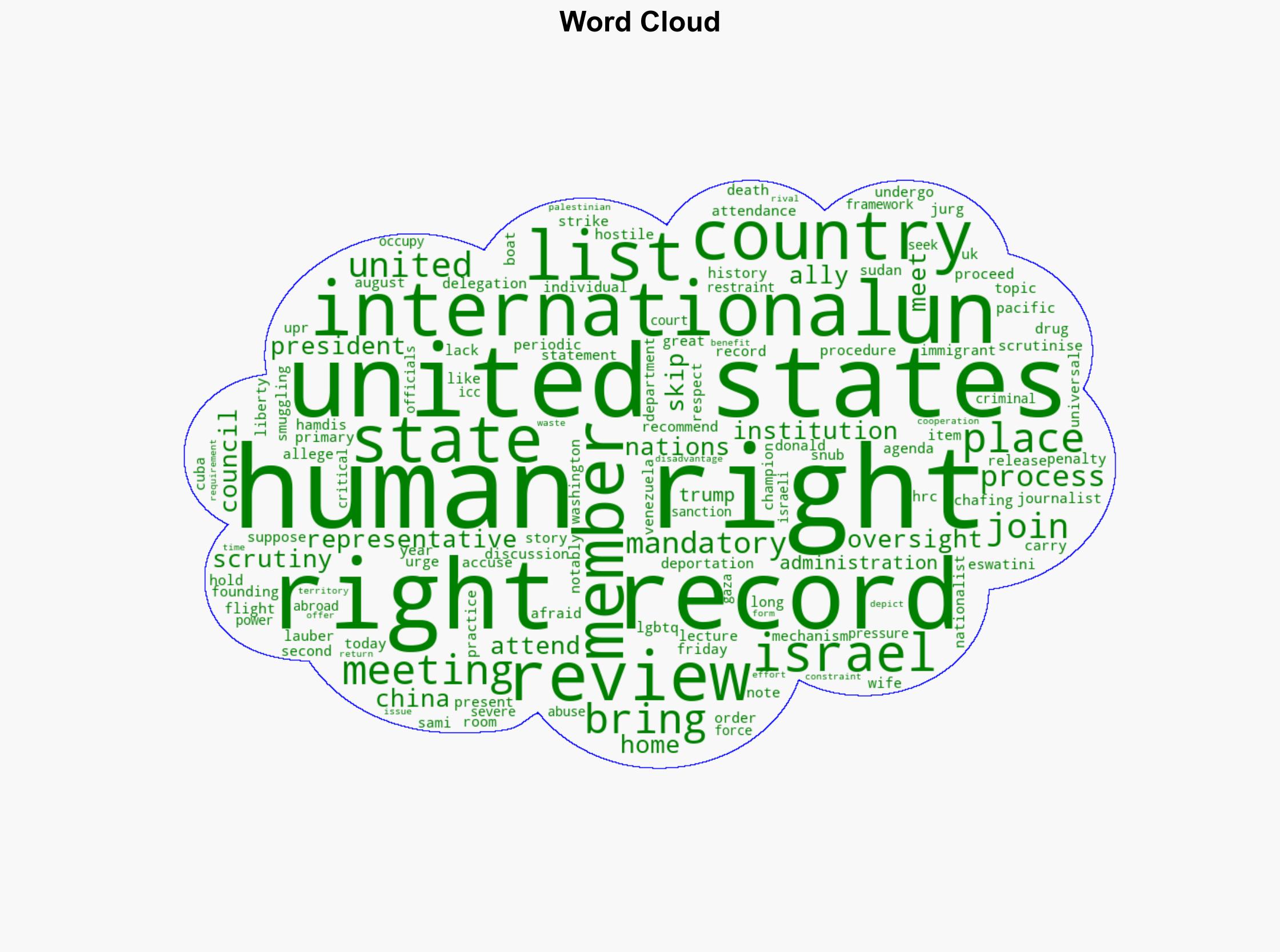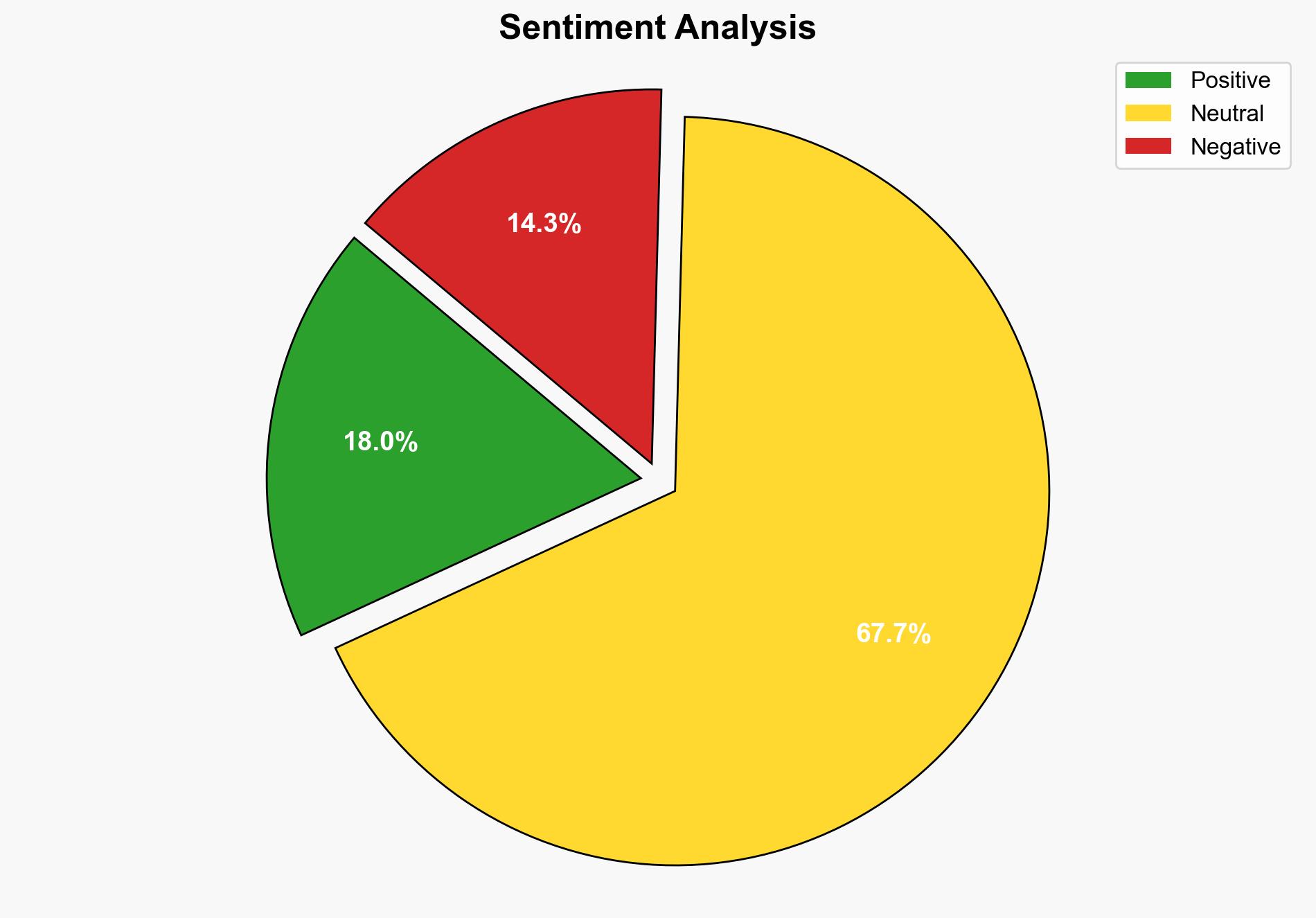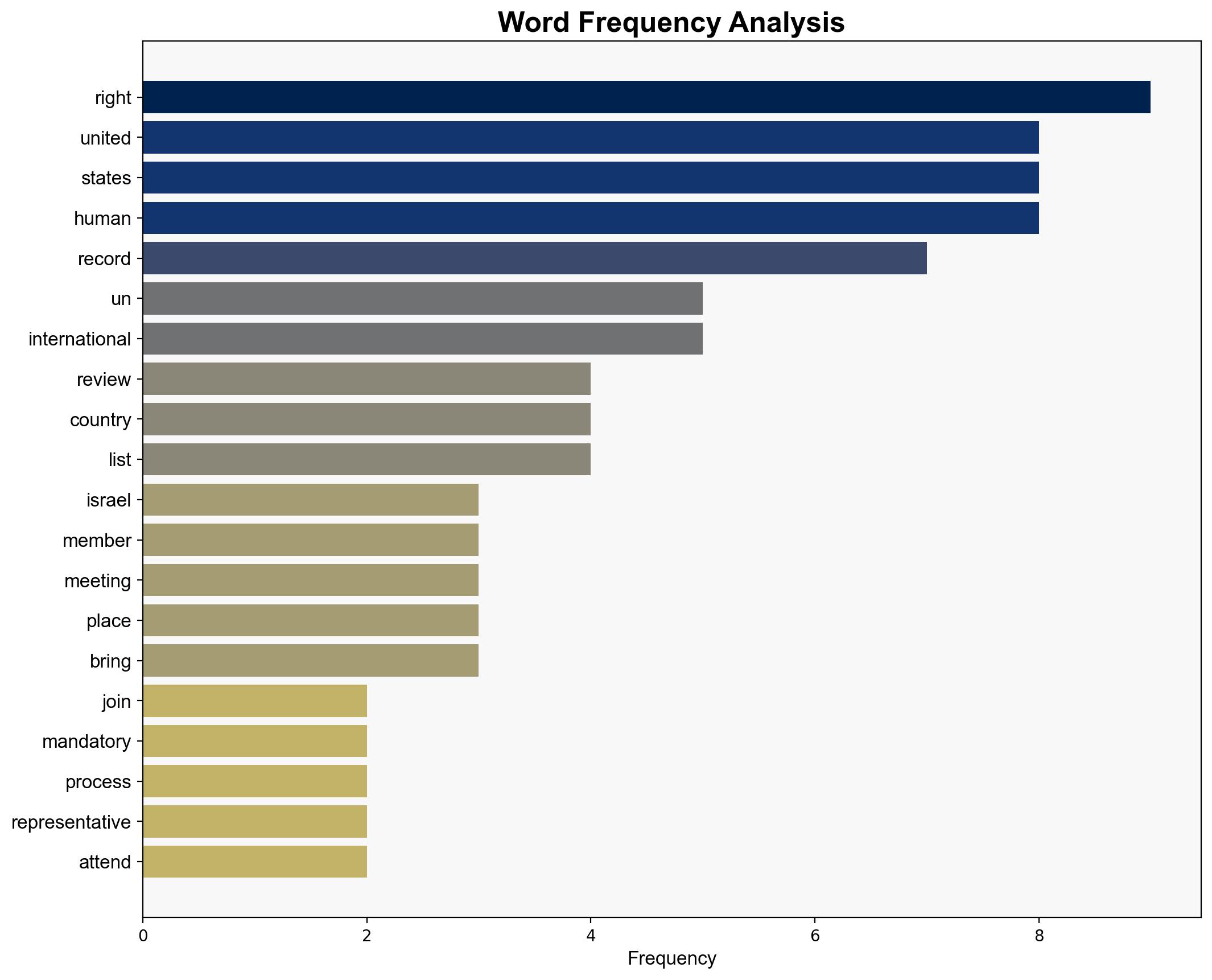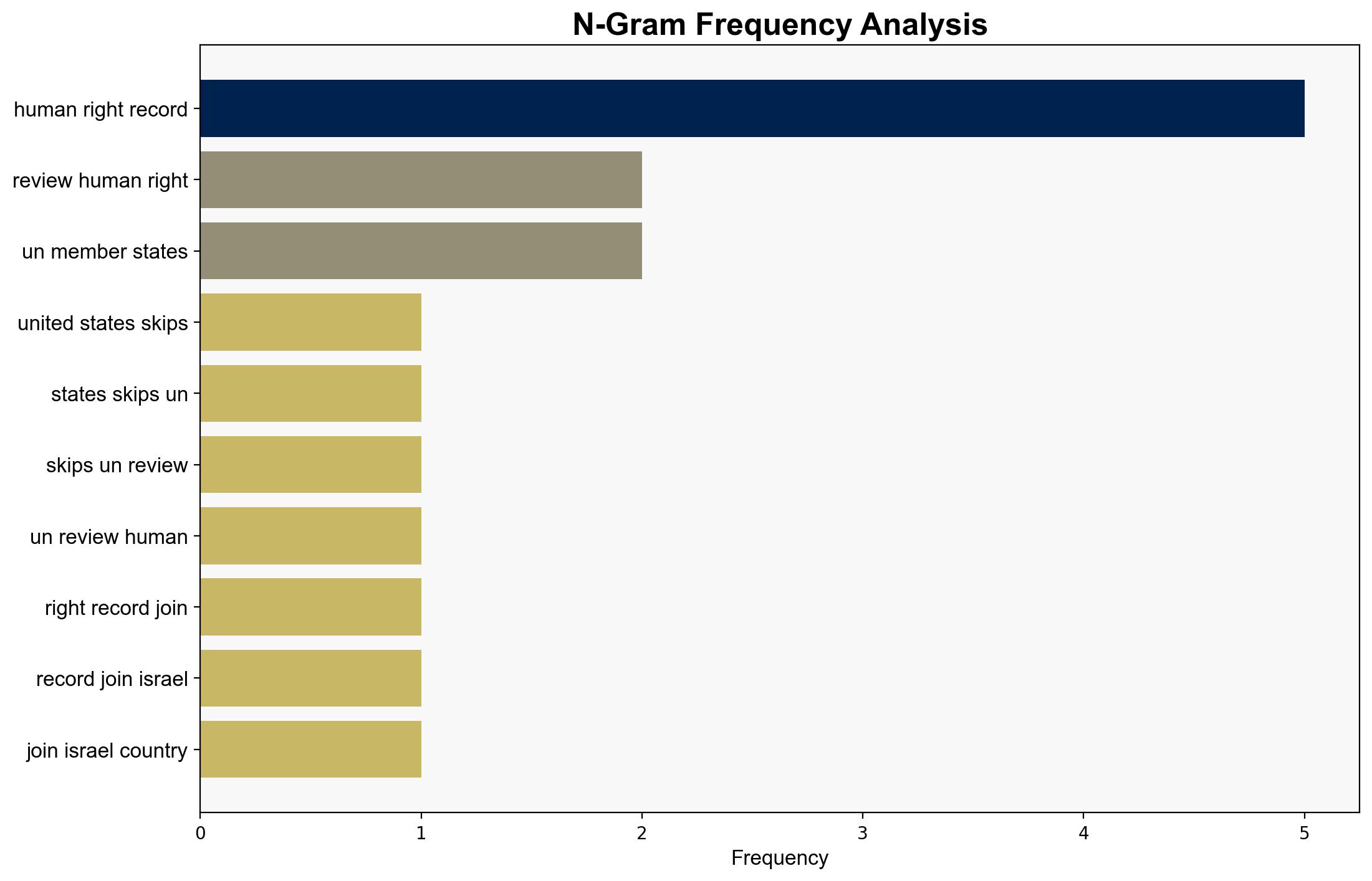United States skips UN review of its human rights record – Al Jazeera English
Published on: 2025-11-07
Intelligence Report: United States skips UN review of its human rights record – Al Jazeera English
1. BLUF (Bottom Line Up Front)
The United States’ decision to skip the UN review of its human rights record may be strategically motivated by a desire to avoid international scrutiny or as a political statement against perceived bias in international institutions. The hypothesis that this move is a strategic avoidance of scrutiny is better supported by the evidence. Confidence level: Moderate. Recommended action: Engage in diplomatic dialogue to clarify the U.S. stance and encourage participation in future reviews to maintain international credibility.
2. Competing Hypotheses
1. **Strategic Avoidance Hypothesis**: The United States skipped the UN review to avoid international scrutiny of its human rights record, particularly on sensitive issues such as LGBTQ rights, immigrant treatment, and the death penalty.
2. **Political Statement Hypothesis**: The decision to skip the review serves as a political statement against perceived bias and inefficacy of the UN Human Rights Council, aligning with past actions under the Trump administration that criticized international oversight mechanisms.
Using ACH 2.0, the Strategic Avoidance Hypothesis is more consistent with the pattern of behavior observed, including past U.S. actions to limit international oversight and align with allies like Israel who also skipped the review.
3. Key Assumptions and Red Flags
– **Assumptions**: The U.S. perceives the UN Human Rights Council as biased or ineffective. The decision aligns with past U.S. policy under the Trump administration.
– **Red Flags**: Lack of direct statements from current U.S. administration officials explaining the decision. Potential cognitive bias in assuming continuity of past policies without current evidence.
– **Inconsistent Data**: Absence of detailed U.S. rationale for skipping the review.
4. Implications and Strategic Risks
– **Geopolitical Risks**: Erosion of U.S. credibility in international human rights advocacy, potential strain on alliances with countries valuing UN processes.
– **Psychological Impact**: Perception of U.S. as dismissive of international norms may embolden other nations to disregard UN mechanisms.
– **Escalation Scenarios**: Increased criticism from adversaries like China and Cuba, potentially leading to diplomatic tensions.
5. Recommendations and Outlook
- Engage in diplomatic efforts to clarify the U.S. position and intentions regarding future participation in UN reviews.
- Consider a public statement addressing the decision to skip the review to mitigate negative perceptions.
- Scenario Projections:
- Best Case: U.S. re-engages with the UN process, restoring credibility and influence.
- Worst Case: Continued disengagement leads to increased international criticism and isolation.
- Most Likely: U.S. maintains a selective engagement approach, participating in reviews on a case-by-case basis.
6. Key Individuals and Entities
– Jurg Lauber
– UN Human Rights Council
– U.S. Department of State
7. Thematic Tags
national security threats, international relations, human rights, geopolitical strategy





